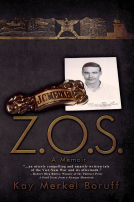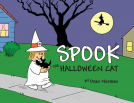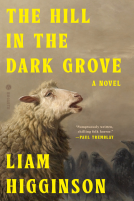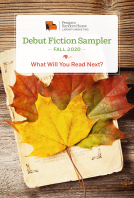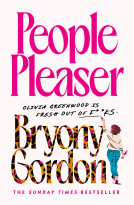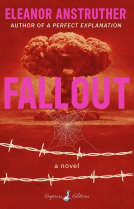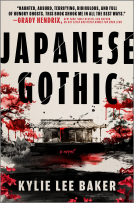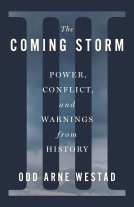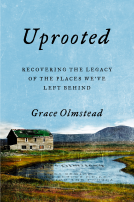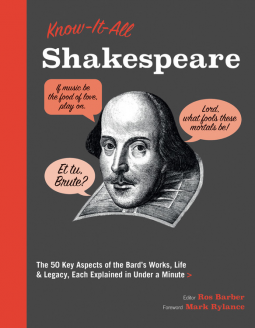
Know It All Shakespeare
50 Key Aspects of the Bard's Works, Life & Legacy, Each Explained in Under a Minute
by
This title was previously available on NetGalley and is now archived.
Send NetGalley books directly to your Kindle or Kindle app
1
To read on a Kindle or Kindle app, please add kindle@netgalley.com as an approved email address to receive files in your Amazon account. Click here for step-by-step instructions.
2
Also find your Kindle email address within your Amazon account, and enter it here.
Pub Date Jun 01 2017 | Archive Date Aug 29 2017
Quarto Publishing Group – Wellfleet Press | Wellfleet Press
Description
The works of William Shakespeare can be intimidating monoliths for the uninitiated. Know It All Shakespeare is your chance to finally jump into the works of the Bard painlessly and without confusion.
Know It All: Shakespeare uses a unique approach to grapple with the work and influence of the world's most famous playwright. This absorbing crash course in William Shakespeare takes the reader through what we know of his life and then turns to uncoding key concepts, themes, and motifs in his plays and works. Finally, the reader is given a succinct look at the Bard's extraordinary literary and linguistic legacy.
More than just a study in Shakespeare's writing, Know It All: Shakeseare also looks at what we know about the Bard's life. Whether you're an amateur in the world of plays and poetry or are a well-read scholar, this succinct and easy-to-understand reference makes potentially material quick and easy to read. And the sleek, visually appealing design means to looks just as good on the shelf as it does in your hands.
The Know It All series takes a revolutionary approach to learning about the subjects you really feel you should understand but have never gotten around to studying. Each book selects a popular topic and dissects it into the 50 most significant ideas at its heart. Each idea, no matter how complex, is explained in 300 words and one picture, all digestible in under a minute.
Other titles in this series include: Know It All Anthropology, Know It All Chemistry, Know It All Classical Music, Know It All Energy, Know It All Fashion, Know It All Great Inventions, Know It All Jazz, Know It All Medicine, Know It All Whiskey, Know It All Wine, Space In 30 Seconds, Sports in 30 Seconds.
Marketing Plan
· Series pitch to: Library Journal, Publishers Weekly, Shelf Awareness, Booklist, Bookriot. Series presented at ALA. National Publicity Campaign to top pop culture and book media as well as top Shakespeare sites online.
Available Editions
| EDITION | Other Format |
| ISBN | 9781577151487 |
| PRICE | $14.99 (USD) |
| PAGES | 160 |
Average rating from 20 members
Featured Reviews
This is a cool little book. A lot of solid information on Shakespeare for the layman.
 Librarian 121315
Librarian 121315
This is the book I wished I had read when I took my Shakespeare’s class back in college. The book is appealing for those who are new to Shakespeare and want to get a feel of the author, his world, and his works; but it is also a delight for confirmed fans of Shakespeare. The book makes an interesting showcase of Shakespearean topics such as his context, heroes and villans, and other interesting elements of his works. The layout of the book is easy to read and inviting. It is not intimidating for the new readers of Shakespeare and the pictures are varied and colorful. I really liked that the author included a short glossary at the beginning of each chapter explaining some of the words to better understand the subjects presented there; this was a nice and thoughtful touch that many publishers and authors do not always care to offer their readers. Overall, great presentation of an old; nonetheless, eternally interesting author.
Before I begin, I feel I should declare my love of Shakespeare. This isn't a topic on which I'm a newbie; I'm an English teacher, regular attendee of the Royal Shakespeare Company productions in Stratford and have spent many a happy year studying and contemplating the Bard. I'm no expert, but I'm keen and interested and comfortable with Shakespeare.
With this all in mind, I approached this book with some reservations. There have been many attempts to create books that tell you everything you need to know about Shakespeare (and I've read a lot of them). Most over-simplify or patronise, while others come as an information overload for the more casual reader.
Therefore, this book is a very welcome addition to the huge body of work on Shakespeare. It is organised very clearly, with each section (for example 'Heroes and Villains' or 'Legacy') comprising a series of one page mini-essays. Each is fascinating in its own right, but also features a short summary ('3 second prompt') and a longer snippet of supporting information ('3 minute call'), as well as a quick reference list of the key people discussed. The pages of text are interspersed with beautiful, brightly coloured pictures relevant to the topics discussed. A print copy of this should be really lovely (I read an electronic version).
The book would be suitable as an introduction to Shakespeare as it is all so clearly explained and glosses all the key terms needed to understand the text. However, there's also loads in it for Shakespeare aficionados; I found out lots I didn't know, such as Elizabethan audiences' understanding of the symbolism of different musical instruments or the botanical knowledge underpinning the witches' spell in Macbeth. There were also some interesting insights by some of the contributors to the book on issues I hadn't really considered before, such as the slightly ambiguous model of kingship that Malcolm presents in Macbeth.
There is so much that is impressive about this book that it feels a little churlish to point out shortcomings, but it isn't perfect. The glossaries, absolutely essential to understanding in places, are spread through the book and so often repeat information. They also seem unsure about what level to pitch explanations, so words like 'fairies' feature alongside technical terminology such as 'anapest' and 'trochee'. Whatever the content, a single glossary at the back of the book would have helped. Another niggle is that there are some brilliant mini-essays on the plays, but these only cover a few of the best-known plays. I'd much rather have read something on the problem plays or the lesser-performed ones, rather than another insight into Hamlet or King Lear. Finally, there were some interesting statements made that were not explained, for example that Antony is the 'most - and least - admirable of Shakespeare's tragic heroes'. Brilliant, but why? I'd love to know, but it's never explained.
Despite the slight imperfections, this is an excellent book. It is clear and concise, suitable for the casual reader to dip into, yet also erudite and broad-ranging enough for Shakespeare fans to find something new and interesting. I'd whole-heartedly recommend this for anyone studying Shakespeare (the contextual information alone is worth a read and fits with GCSE and A Level requirements for students to understand the plays in their wider contexts). However, this would also serve those who are totally new to Shakespeare (and who want to know what the fuss is about), as well as those who feel like they already know a lot about the Bard. There are interesting perspectives and insights for everyone here and that should be commended.
Great breakdowns of key themes and plays. Would work brilliantly for schools!
 Ashley W, Librarian
Ashley W, Librarian
Need a quick refresher on Shakespeare and the context of his works? Then you will find this very useful. Covers all your bases so you can sound somewhat intelligent when talking to your lit snob friends about the Bard.
The Know It All books offer a fast-paced look into various topics with lots of fun images thrown in. They cover a lot of topics with a good overview amount of data. Each topic is easily digestible on one page so it's great to flip to a random page and read (or read in order like I did). The books introduce new vocabulary that you would need in order to understand the next few topics. .
Know it All Shakespeare - This was a fun book for me to read because it explained a lot of background into the Shakespearean time, as well as common themes throughout his work. I think this would be a great book for any new fan to read, as it gives descriptions of a lot of his plays throughout which could inspire your list of books to read. I would not gift this to my sister who has a degree in English because I think it would be a review and a bit of a bore. To the rest of us without lit degrees, it was a fun, enjoyable read which would be a great edition to a coffee table book collection where someone could flip to a random page and learn something new.
 Educator 317339
Educator 317339
All of the Know-It-All series of books are excellent! Each of them gives a synopsis of the most important things to know on the topic in a brief but well-laid-out manner, and Shakespeare is no exception! These books are a good introduction or a good review, as well as a starting place for discovering which topics you'd like to learn more about afterwards -- and then you can get a more in-depth book on just that topic.
Readers who liked this book also liked:
John Kotter; Holger Rathgeber
Business, Leadership, Finance, Nonfiction (Adult)
L.M Montgomery
Children's Fiction, Comics, Graphic Novels, Manga, Teens & YA



